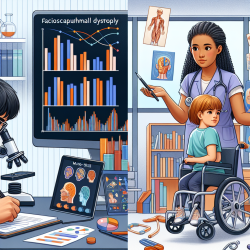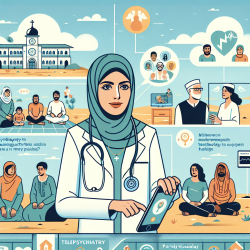Introduction
In the ever-evolving landscape of healthcare, the intersection of medicine and law plays a pivotal role. The systematic review titled "Medical Law and Medical School Curricula: A Systematic Review" highlights the importance of incorporating medicolegal education into medical school curricula. This integration not only enhances the professional ethics of future physicians but also improves patient advocacy and outcomes.
Understanding the Need for Medicolegal Education
The review underscores three main themes: the negative perception of health law among medical students, their lack of preparedness to handle legal aspects of healthcare, and the benefits of including medicolegal courses in medical school curricula. Historically, medical students have harbored negative attitudes toward the legal field, often viewing it as an obstacle rather than a tool. This perception is compounded by a hidden curriculum that perpetuates outdated beliefs.
However, as the relationship between medicine and law continues to evolve, there is a growing need to educate medical students on legal medicine, including medical ethics. A comprehensive understanding of the interplay between law and medicine can help medical students advocate for health policy reform, navigate ethical dilemmas, and inform patients of their rights.
Implementing Medicolegal Education
The review suggests several strategies to improve medical students' understanding of legal medicine:
- Incorporating individualized medicine-law electives, mock trials, and simulations.
- Collaborating between local law and medical school faculty to optimize resources and provide students with real-world interactions.
- Integrating medicolegal education into each phase of medical school, with preclinical years focusing on understanding medical law and clinical years on applying this knowledge.
These strategies not only mitigate negative perceptions but also prepare students to handle legal aspects of healthcare effectively.
Benefits of Medicolegal Education
Incorporating medicolegal coursework offers numerous benefits:
- Enhances professional ethics and interdisciplinary collaboration.
- Enables physicians to advocate for patients and lobby for policy changes.
- Bridges the gap between legislation and clinical medicine, ultimately improving patient outcomes.
Studies have shown that medicolegal education can improve medical students' perceptions of the legal field, fostering a positive relationship between the fields of medicine and law.
Conclusion
Preparing future physicians to navigate complex legal discussions, recognize and address legal issues, and advocate for patient rights is crucial. By expanding medical school curricula to include medicolegal education, we can ensure that physicians are equipped to foster a positive relationship with the field of law, improve interdisciplinary collaboration, and enhance patient outcomes.
To read the original research paper, please follow this link: Medical Law and Medical School Curricula: A Systematic Review.










